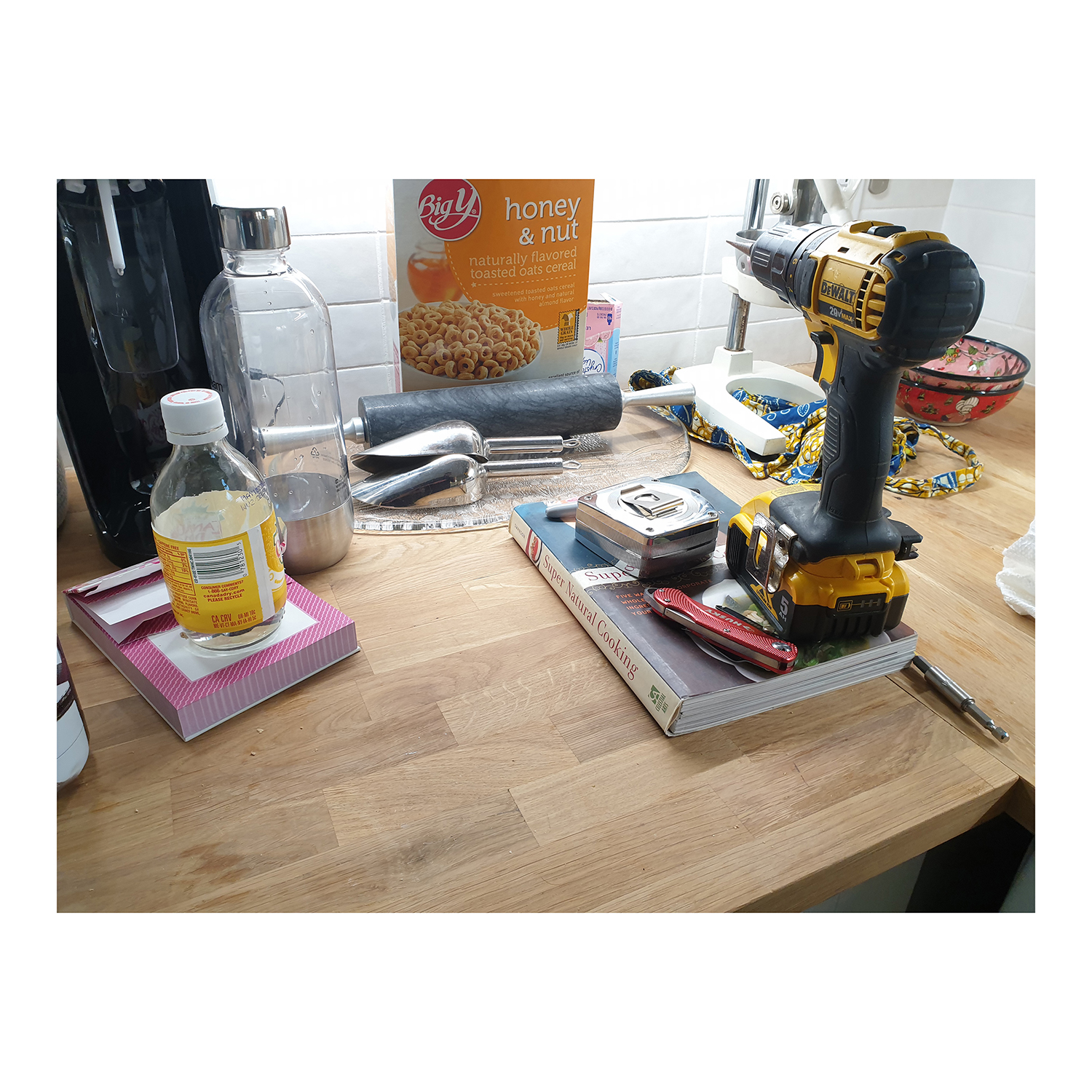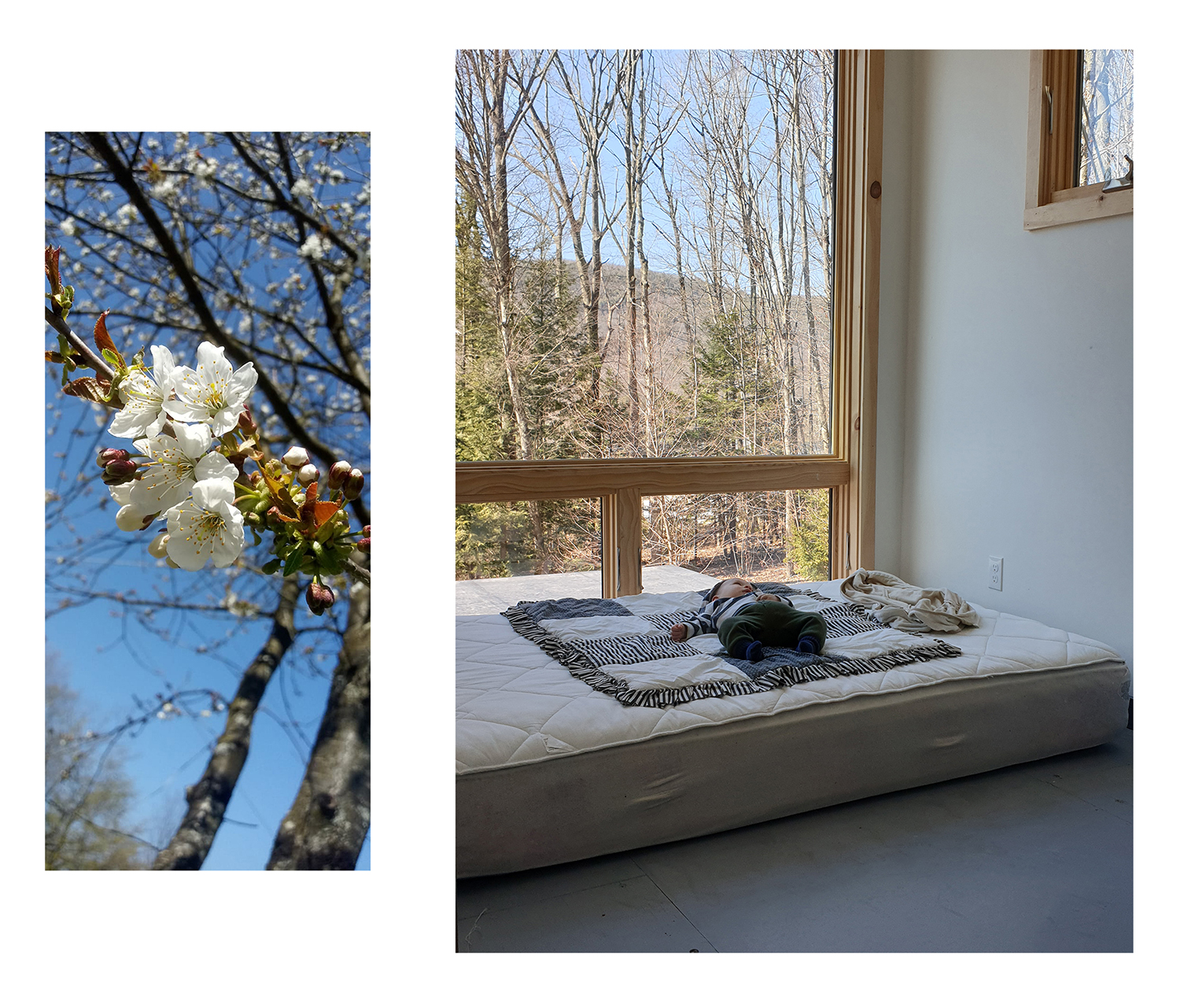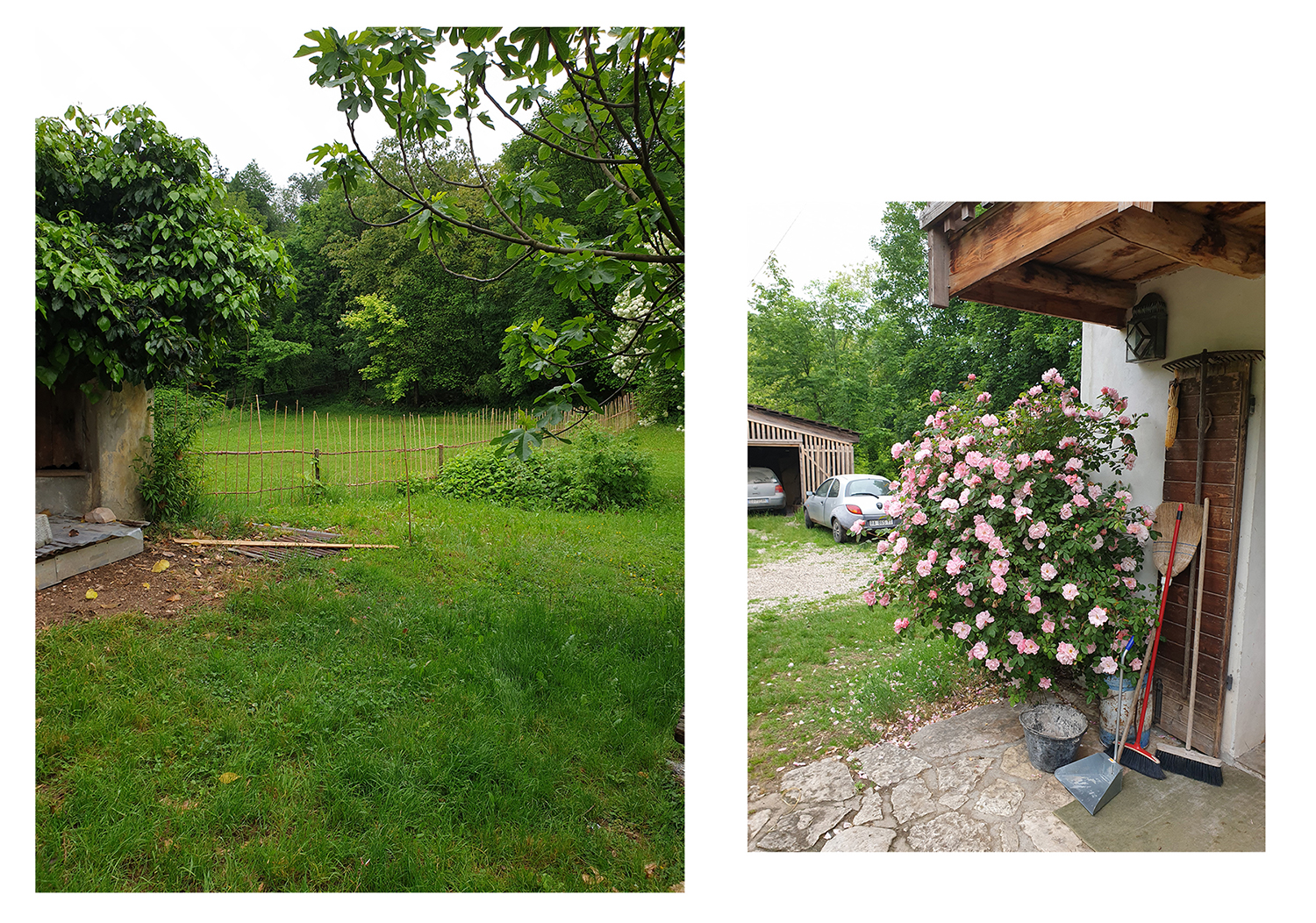1.

A windswept Italian mountaintop and a home beneath swaying electrical cables, hidden by tall brush and trees. Natural light in the house from midmorning to late afternoon, year round. The trees rustle and the owls watch the land and the occasional mole digs a mound for its place to sleep. Papi, my father-in-law, has lived in peace here for the better and worse parts of his life. From his seat on the stone porch he built, he smokes, drinks a glass of wine, watches the land.
A trail runs through his property, much to our chagrin. The trail is frequented by schoolchildren, hikers, and cyclists who stare into the casa rurale where, until recently, my wife and son and I lived with Papi. There we ate meals, shared tea, felt alone until we realized we were not.
Papi began building a fence, bundles of sticks and twigs placed along the upper reaches of the path to form bollards. My wife hiked the path and placed a sign redirecting traffic around the home and its wild, unkempt lot. Still they came, first one, then two, then five and more; some rushing, some yelling and shouting, some carrying their bicycles over the bollards. “Do I know you?” Papi shouted at one man trekking through with hiking poles. “Sometimes I don’t even know myself,” the man said, and continued down the path. Years ago, Papi had approved the path, allowing the village to announce it as public, even though it cut between the house and the garage-cum-workshop and woodshed. Now he regrets having given his approval. He builds more bollards, fells more trees into the path’s artery, staunching but never severing the flow.
When the virus garnered nationwide attention in Italy, in March, Papi watched as we packed up, taking our infant son and flying to our reportedly just-completed home in Massachusetts. Papi had heard us talk about the home for two years, its fraught construction process, the inflated costs that drove us to come and live with him. He was happy we would have a chance to see our American home, but said Italy was our real home. When would we be back? Two months, by early spring. He would start the garden, he said, and build a better fence.
2.

A home, the idea, the structure, is meant to withstand external forces. When we arrived at ours in Massachusetts, after a transatlantic flight ahead of Europe’s travel ban, things were less than finished. The contractor had misled us. Problems abounded. Baseboards were partially stained or not at all. Ants crept through gaps where the floor should have met the wall. The windows needed caulking. The concrete flooring had already cracked. Paint was peeling. Nails jutted out of doors and window frames. In quarantine due to the virus that we fled in Italy, a contagion that seemed to follow us overseas, we lived inside a work in progress.
We set about cleaning the space—sucking and wiping up dust, removing paint from trim, filling gaps with white silicone, and scrubbing the bathrooms. I replaced the uprooted deck board. I reinforced the spiral staircase. A ramshackle tinder box comprised the front steps, which I tore down and replaced with new pine shiplap, trim, and paint to match the exterior. For each project finished, two more cropped up. The totality of the project seemed insurmountable. One afternoon, with our son napping in his room without doors, we sat on the deck and surveyed the back lot. Trees ripped from their roots. The possibility of grass beneath the sawdust. Then, in the wooded area nearest, we heard a grunting. An all-terrain vehicle and a man astride it tore through the opening and stopped at the tree line. He waved. I stood up, akimbo. The man reversed and disappeared. A few days later, a couple drove up to the front porch on a gas-powered golf cart. They must have been out for a solitary quarantine drive and had come upon a site they believed to be still under construction, vacant. From a window upstairs, I shooed them away. Visitors, intrusions, inevitability: Call it what you will.
3.

Papi set to work the moment we left, preparing for our return. We each worked on our homes, apart. We each tried to avoid people, putting up barriers that seemed increasingly silly. Few people traverse his trail now. Most are confined to their properties across northern Italy, where Papi sows his field, working the land into earthly scars like molehills under snow. I sent him photos of our progress. A cleaned deck, a newly framed entranceway. He sent my wife pictures of the blossoming fig tree. He has lived this life for decades, tending a postlapsarian fortress before nearly every citizen on Earth was confined to his or her own. It was one of the appeals, the reason for his staying there for most of his life. A short detour to the United States, where he lived while raising my wife, drove him back to this quaint mountain bolt-hole. The life of distance and monasticism was a draw. And when the Italian military came to his door to give out face masks, reminding him to stay inside, but for necessary medical travel or grocery shopping (he doesn’t eat much beyond boiled meats, fish, and a stockade of pastas and cheeses he keeps at home), he undoubtedly invited the soldiers in for a glass of his red wine. They had entered his utopia and he wished them well. He had balked at the virus for weeks, then months, disbelieving its severity. Though its reverberations swept us away briefly, to Papi it seemed as though the sickness would never appear on his property. He started the garden, plotting our return and the vegetables to plant. Waiting for summer.
4.

Almost June. We tour the garden together, Papi leading me as a blind man through a heady brush. What’s this? When will the lettuce be ready? And the beans? Papi laughs, a loud, throaty cackle. He says he doesn’t know when, maybe soon. We’ve returned, a journey in three airplanes and four airports more fraught than any we’ve known before. The hazmat suits, worn by passengers, seemed chic. How did they manage to coordinate their goggles with the color of their shoes? Thermal scanners and hand-sanitizer stations everywhere. People standing at a distance, the worry in their eyes clear even from afar. And when we arrived in Italy, as part of the country’s ongoing mandate for travelers, entered another fourteen-day quarantine.
Now, at the garden, we pace. Strawberries abound: The ones inside the fence are nearly ripe. The wild ones outside are not quite ready and a quarter of the size. After a week of rain, the sun is out.
My aunt, who lives down the hill, says the sun kills the virus; she heard that on the radio. I’ve seen reports of that too, but I’ll bask in the sun for its warming, not just its healing, properties. My son sits at the garden’s perimeter. He can sit up now, can see this limited world on his own. Papi’s schedule hasn’t changed. He travels into town, sees friends, avoids the long lines at the supermarkets by going to a small sundries shop to which he hasn’t yet taken me. (A family secret to which I am not yet privy.) We wake with my son each morning for a longer day, the ambient light from after sunset not quite disappearing now until after 10 p.m.
There are hikers occasionally at this late hour, making their way down the mountain and passing our home. They stop, gander at the garden. Bellissimo, molto buono. They admire it from afar, preserving the precious and haunted space found in between.
These dispatches are from #VQRTrueStory, our social-media experiment in nonfiction, which you can follow by visiting us on Instagram: @vqreview.






